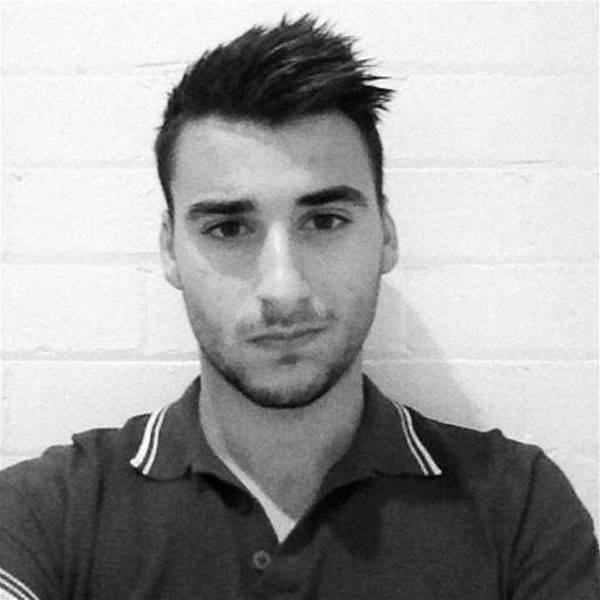Remembering one of the Premier League's greats
As a youngster growing up on the Premier League, in those formative years there was always one player who stood out. He didn’t have the flashy hair do like David Beckham, the razzle dazzle of Thierry Henry, but he was every bit as visible. Gary Speed was an immensely talented footballer and a genuine good guy. No one in football has uttered a bad word about the fantastically professional and talented Welshman who died on Sunday in his Cheshire home.
The outpouring of grief and the tributes that have come in from all the farthest reaches of the football community tells a story on its own. Speed was the consummate professional. His career as a professional footballer spanned a very impressive 20 years. In a recent interview with FourFourTwo, Gary Speed said he regretted not winning more as a professional footballer. Gary may have only picked up the solitary first division championship medal, which he did with Leeds in 1992, but the word “champion” is one that fits few as well as it does Gary Speed.
Speed’s career saw him play for some of the biggest clubs in England, starting with Leeds in 1988, where he played for eight years, picking up two league titles (he won a second division championship in 1990) and a Charity Shield. Gordon Strachan spoke highly of Speed’s attitude to training and football as a whole in those formative years of his career, retelling how Gary would stick around after training to work on individual parts of his game, despite being a fully-fledged first team member of one of England’s best football teams at the time.
Strachan said, “I used him as an example. I used to say to players, 'listen, if you want to look at somebody, how to be a footballer, how to deal with the football-world, look at Gary Speed’.
“I used to say to players 'you’ve got more talent that this fella but this guy got the most out of what he had’.”
After a glittering career with Leeds, Speed was transferred to Everton, his childhood club, for a fee of £3.5 million. He enjoyed some fantastic times at the club of his dreams, where he scored on his debut against future club, Newcastle United, and it is also the club at which he scored the only hattrick of his career, in a 7-1 demolition job at Goodison Park against Southampton. Speed’s relationship with new manager Howard Kendall deteriorated and eventually forced Gary out of the club, paving the way for him to move to Newcastle for a fee of £5.5 million in 1998.
Gary Speed developed a fine relationship with legendary manager Sir Bobby Robson in his time at Newcastle, and would get his chance to play Champions League football. He was also twice an FA Cup runner-up in his time on the Tyneside in successive seasons in 1998 and then 1999, and he also competed in a UEFA Intertoto Cup final in 2001 in the black and white of Newcastle.
It was with a heavy heart that Speed would leave Newcastle. Struggling to get into the first team, Sir Bobby made the decision to allow the Welshman to move on, and although Speed enjoyed a fine career with Bolton Wanderers, he had expressed his heartbreak at having to leave the Tyneside club. Well into his 30s, many expected Speed’s move to Bolton to be his last, as he wound down his career at the top. That school of thought vastly underestimated the resilience of Speed and his underlying ability and professionalism that allowed him to play until he was 40. He would go onto make 139 appearances for Bolton, becoming an integral part of Sam Allardyce’s outfit, becoming the first player to make 500 Premier League appearances in the process.
He finished career with Sheffield United after finally succumbing to a back injury that kept him out of action for a year. Outside of his club career, Speed would captain Wales, and go onto become the nation’s second most capped player after playing for the national side in 16 years.
A career in management beckoned after his playing days concluded, and after a four month spell in charge of Sheffield United, Gary Speed was named as manager of his beloved Wales. A somewhat shaky start was soon put right by the young up and coming manager, who guided his young generation of Welsh talent to impressive wins over Montenegro, Switzerland, Bulgaria and Norway. With Wales improving so sharply under Speed’s guidance, it will remain tragically unanswered as to how far Speed might have taken this group of players.
His death is a stark reminder to us all of the mental health issues many men all over the world face. The football world has lost a true gentleman in Gary Speed, and we have to do everything we can to turn this loss into a turn for the greater good. FourFourTwo Australia reporter Aidan Ormond’s piece on this site, calling for a Beyond Blue round in the Hyundai A-League is a start, and I ask that you all get behind this campaign to make it a reality.
Seeking help is never a sign of weakness, and if you are suffering from depression, I implore that you take the necessary steps to help yourself. That can be as simple as talking openly to family, or calling one of the many counseling services available, such as Beyond Blue whose details can be found at the bottom of this article.
Welsh Football’s loss has been described as “incalculable” and the hole left in the football community will not be an easy one to fill.
Rest in peace, Gary Speed.
BeyondBlue Details
Website: http://www.beyondblue.org.au/index.aspx?
Info Line: 1300 22 4636
Donations: http://www.givenow.com.au/beyondblue;jsessionid=3A8F1853C9B963ECA5A60B6624C88F53











